PRAMANA GOES TO KOTE IN KOREA!
The special edition of Pramana Asian Film Festival took place in Seoul, South Korea from 4 to 6 September 2024 at KOTE Insadong. All events were free admission.
PAFF Seoul Intro was a part of KOTE Art Festival 2024 organized by KOTE Insadong to celebrate Frieze Week from 3 to 7 September. Focusing on the historical significance of Haebong Building and exploring media and culture, this year’s festival brought more than 100 artists, musicians, historians, filmmakers, and communities together to feature a diverse range of activities, including film, music, media art, traditional Korean music, dance, and DJing.
During the three days, we screened 20 short films from 18 different countries in the Asian continent carefully selected from our previous editions to discuss identity, cross-regional, -generational, and -cultural conflicts as well as Asian culture at large.
We were also thrilled to meet the cast and family members of James Cutler, the director of Confused Blood, and discussed their experience of filming Confused Blood as well as a few behind stories. The following day, we were honored to invite Shekh Al Mamun, the director of Perm for a conversation with the audience.
The special edition has allowed us to connect with our audience abroad in Seoul and the larger areas of the province. This was also an opportunity to dive deeper into the philosophy behind the mind of Shekh Al Mamun, who shared accurate insight into the lives of South East Asian actors and filmmakers in the Korean film industry.
We thank KOTE Insadong and its team for inviting us to participate in such an amazing initiative. We hope to see you again soon. Thank you, Seoul!
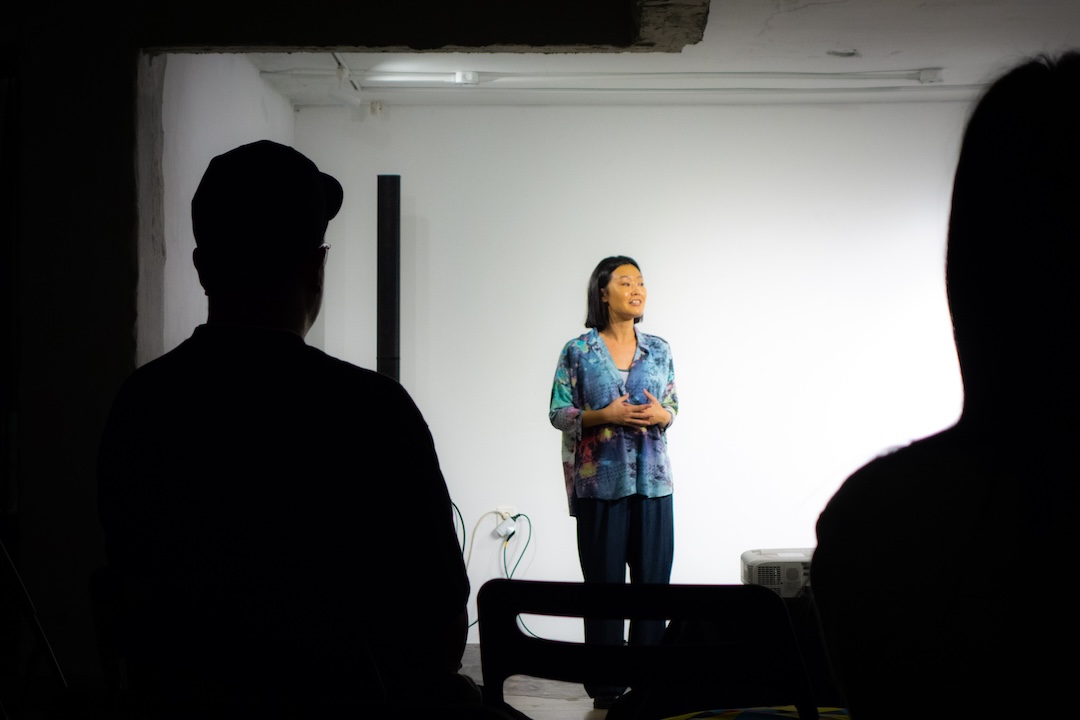
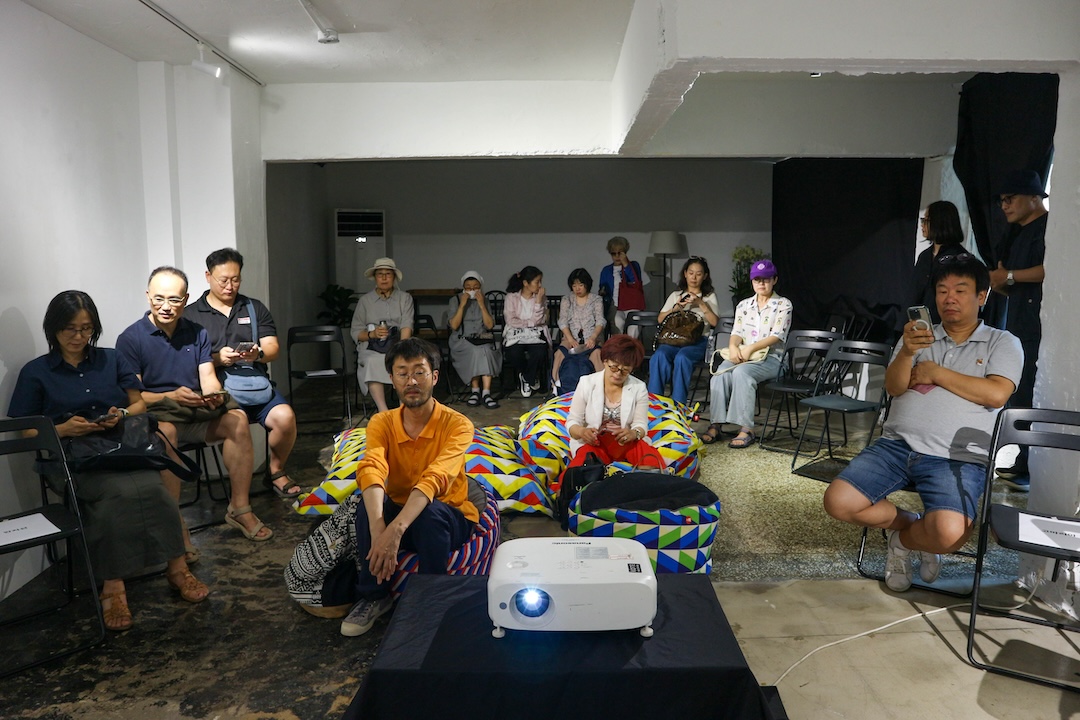
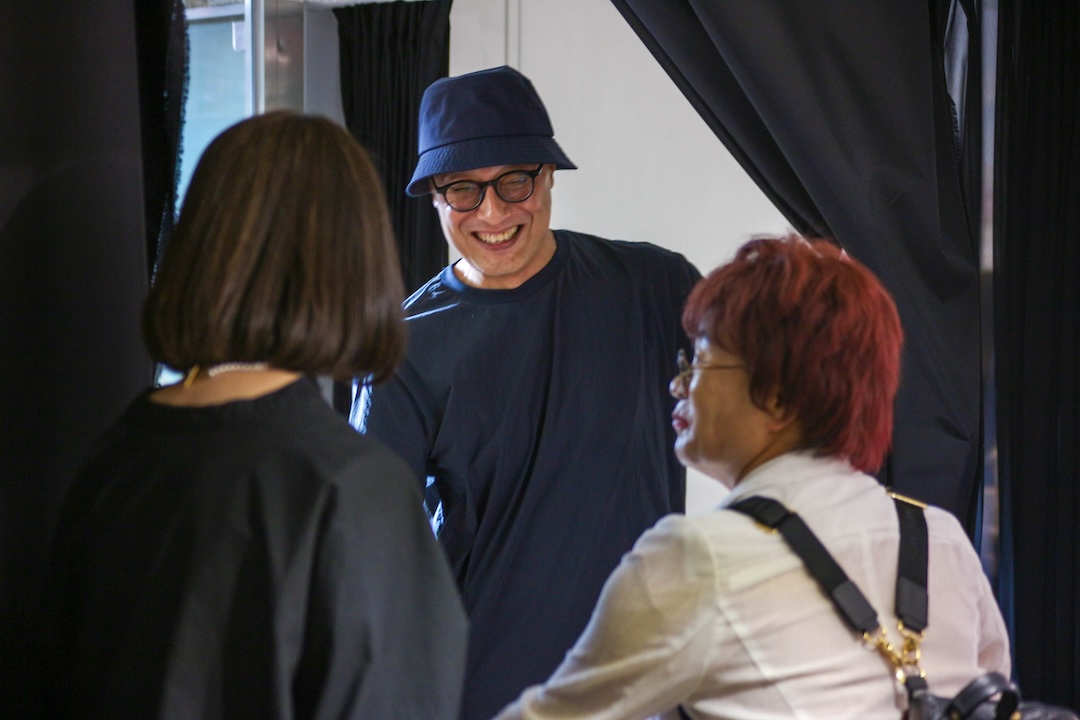
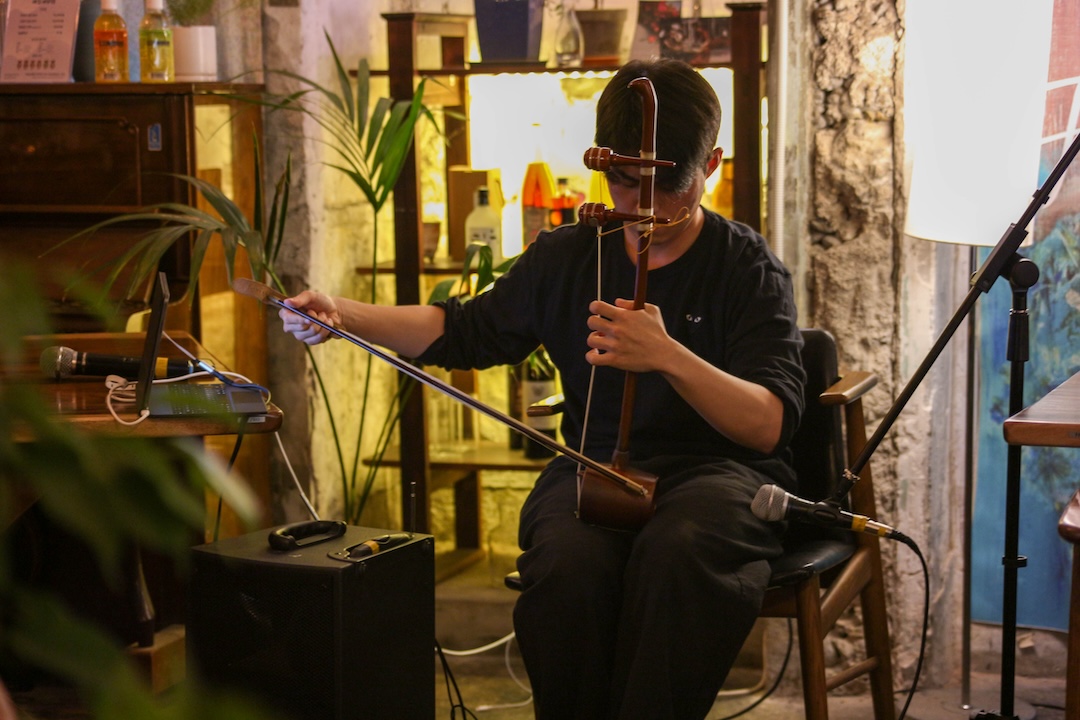
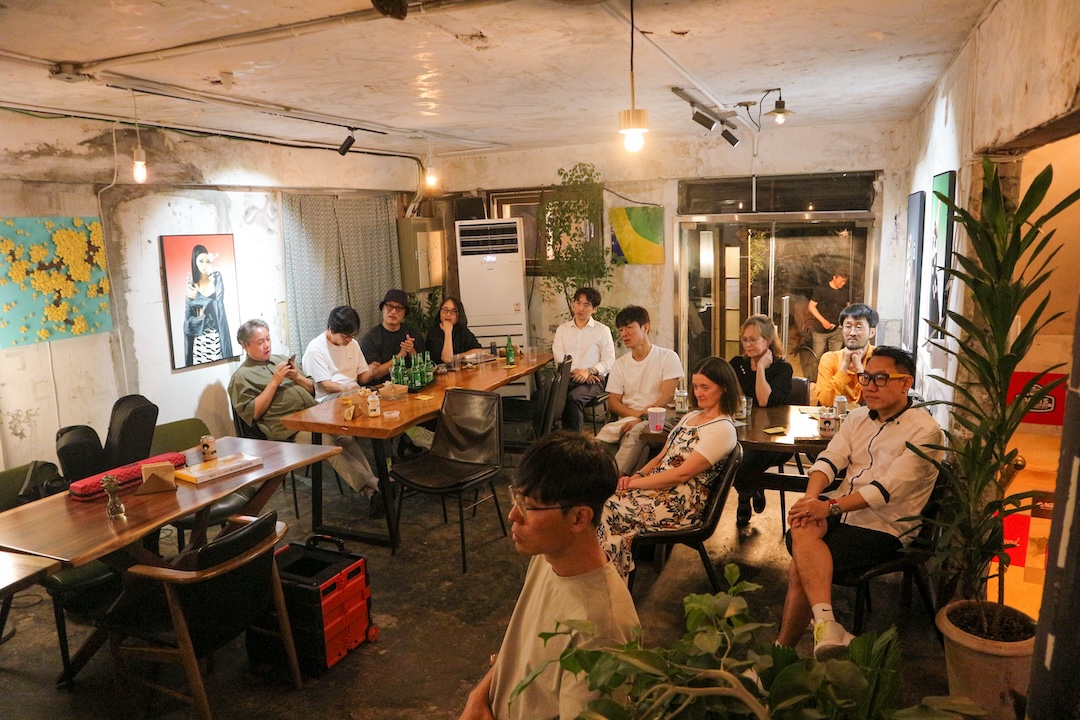
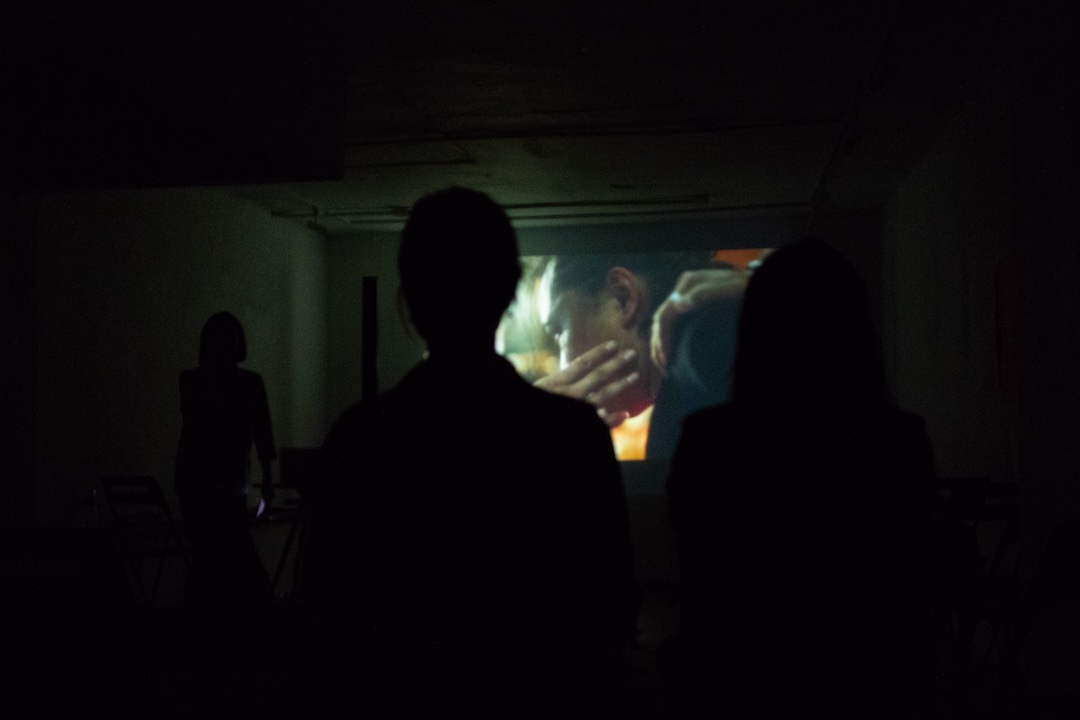
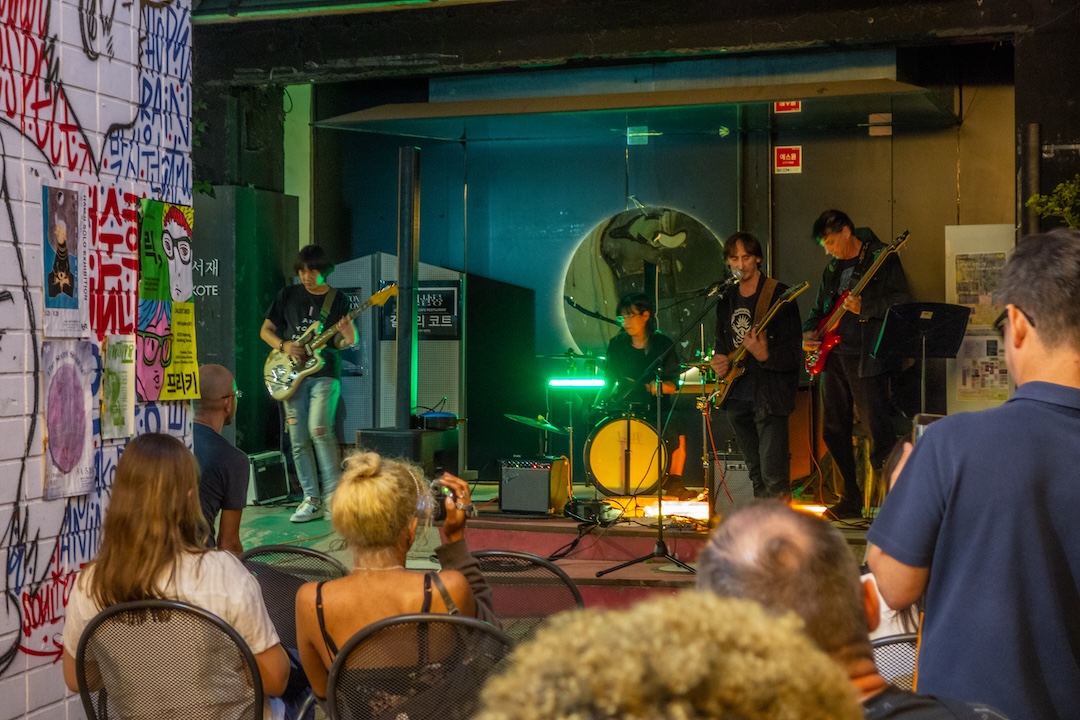

MEETINGS WITH DIRECTORS
SHEKH AL MAMUN
Hailing from Dhaka, Bangladesh, Shekh Al Mamun initially came to South Korea as a migrant worker in 1998. Later, he became a member of the human rights movement for migrant workers in Korea, then obtained his Korean nationality in 2009. He also spearheads the Asia Media & Culture Factory, an organization supporting arts and culture projects for immigrants in Korea.
It was also interesting to learn the story behind the creation of the script of the film, Perm. Neesha, the main actress in the film, was also a migrant worker in Korea, but then she realized that she came of age to be married back home in Bangladesh. To protest against this foretold traditional life, Neesha decided to shave her head to seem “un-marriable” to her pursuers back home. After hearing about the story, Shekh was inspired to tell a Korean version of the story while expanding on the theme of immigrants in the country.
Tuning into his understanding of Korean culture as well as its cultural landscape in terms of public policies and practices was a ride one could not miss. Comparing Dhaka and Seoul, Mamun believes both cities are on the same projection to transform into an ultimate megalopolis as he believes that Dhaka is on its way to becoming more developed like many other Asian cities such as Seoul. Also, he particularly pointed out the lack of alignment between the appearance and the actual value created by many cultural initiatives in Korea. For example, Mullae Arts Village, Hongdae Street, Seocho Cultural Arts Center, Incheon Art Platform, etc. He believes that public intervention to regulate the cultural landscape and creative ecosystem to provide a more sustainable and protected environment for artists and industry professionals.
As he has built a decade-long career as a migrant filmmaker in Korea, he is the most confident and passionate about the stories about immigrants in Korea. He also participates in many other media and film-related initiatives in Korea such as DIFF. His upcoming projects include the annual event organized by Asia Media & Culture Factory and his new feature film, Unplug (빨대), which began its production just a day after the interview. Keep your eyes open for his next move!
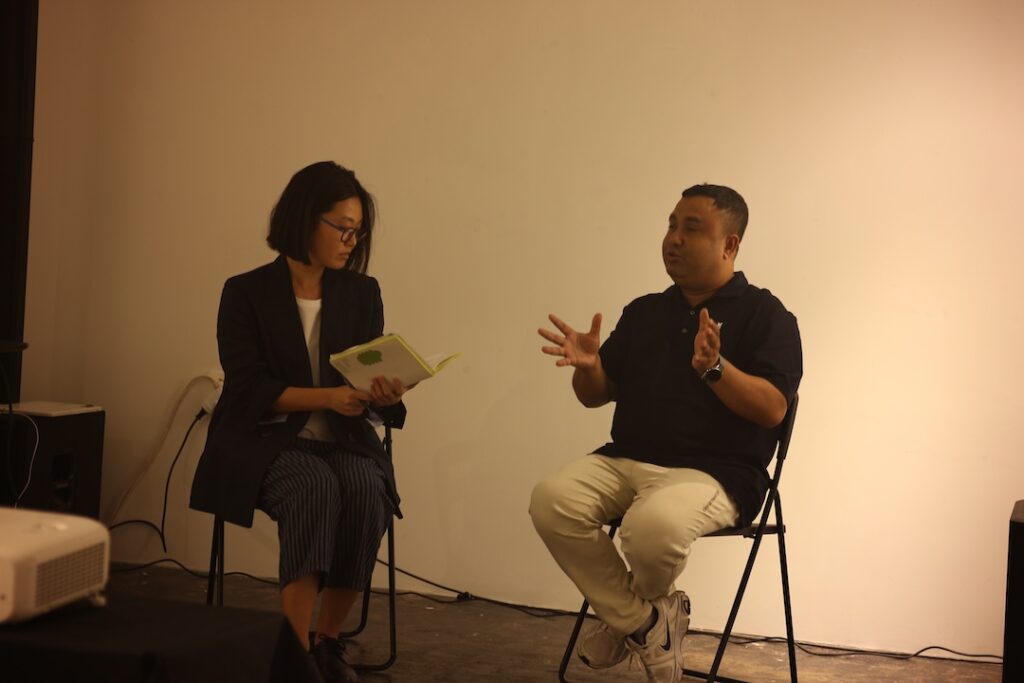
TAN WEI TING
We had an opportunity to meet with our beloved director Tan Wei Ting in Singapore as we wrap up this year’s editions. She had just returned from her visit to Pakistan where she met up with Awais Gohar, another director we collaborated with for his film, Beyond in our 2022 Edition.
The answer to all our questions was simple: curiosity. Her inspirations as well as practices follow where her curiosity takes her from her everyday observations or stories of the people around her. Although she has always been more comfortable writing scripts and editing films, she has found herself in the role of director in many of her projects. She wants to be better at navigating the human-relationships part of filmmaking, while making sure it is the best version of the film for the audience to see.
When preparing for Love at 50, Tan wanted to answer the following question. “Do people in their 50s still think about or yearn for romantic love?” Her curiosity grew as she explored the idea of romance in Singaporean society. She believes that in Asian context, many remain conservative about the topic and there is a certain atmosphere surrounding the subject of romance. However, to Tan, this seemed ironic as romance is naturally a big part of life. Then there, a beautiful 30-minute-long film about two middle-aged love birds was made.
Her background in the creative industry originates from theatre. She joined the youth wing of Drama Box, a socially-engaged theatre company when she was 18, and hasn’t stopped working with them ever since. Many times, they provide a performing art experience to the mundane lives of not-your-typical-artgoers. It is important for them to bring people together to enjoy their performances in an environment that the audiences are familiar with instead of only in highly calibrated or curated space. In fact, it’s this theatre environment that Wei Ting found her cast members for her films. The familiar faces you see in CA$H and Love at 50 are mostly veteran actors who have pioneered the theatre scene in Singapore for many years.
Her story behind writing the script of CA$H was intimate and touching. Tan told us that many of the specific lines and character traits were inspired by her mother. After being a stay-at-home mom for a while, it was a refreshing experience for her to return to the workforce as a cashier at a local supermarket. Her detailed descriptions of her day and regulations that she learned to respect at work related to organizing inventories and checking the cash brought a lightbulb to Wei Ting’s mind. At the time, she found this simple story suitable to the changes we faced as a society towards the 4th Industrial Revolution and the generational change in the workforce back in 2018. However, she finds the situation in the film pretty different from the current society as we evolve too quickly.
For this reason, Tan expressed that she would like to consider going back to study and find a slower-paced lifestyle. Meanwhile, she cherishes her experience of meeting independent film directors from all over the world during her participation in the film academy in Busan, South Korea. The international collaboration was an eye-opening experience that widened her perspective on her creative practices. Therefore, her quest to explore many questions about life does not seem to stop any time soon.
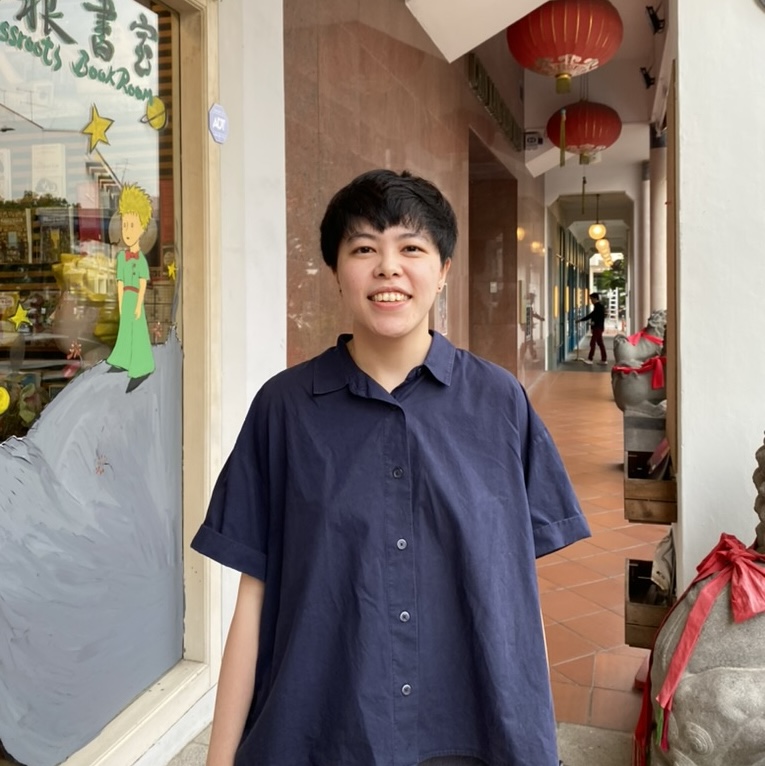
CREDITS
ORGANIZATION: Associazione Culturale Pramana
ARTISTIC DIRECTION AND PROJECT MANAGEMENT: Haejee Park
FILM SELECTION AND PROGRAMMING: Federica Buccheri, Giorgia Megliola, Haejee Park, Simone Colistra
PHOTOS: Trix Willems, Wichan Kim
COMMUNICATION AND SOCIAL MEDIA: Haejee Park
SPECIAL GUESTS: Shekh Al Mamum, Tan Wei Ting, cast members of “Confused Blood”